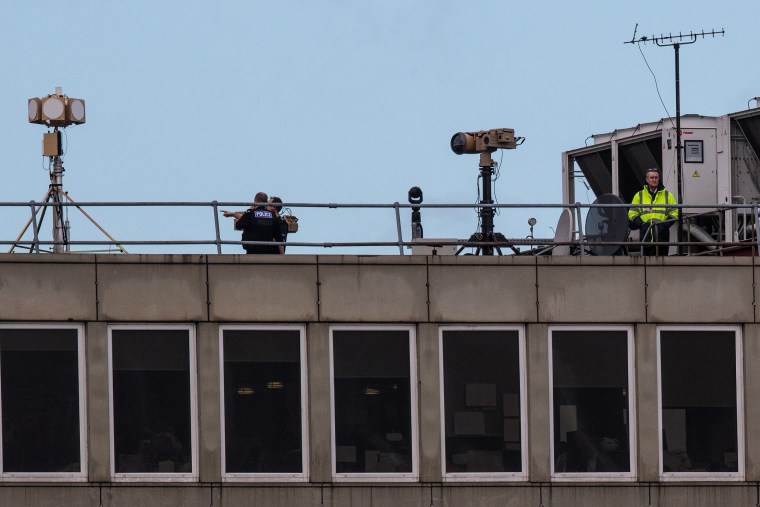WASHINGTON — The Department of Homeland Security is beefing up its anti-drone efforts away from the country's borders as it takes aim at potential national security threats.
The dangers posed by explosives-laden drones were underscored last year by an assassination attempt targeting Venezuelan President Nicolas Maduro as he made a speech. The FBI has also warned that it expects terrorist groups to attempt to use drones to carry out attacks on American soil.
"In the wrong hands, they're a real threat," said Tim Bennett, who oversees counter-drone technologies at the DHS.
While it is unclear how many drones are owned in the United States, "tens of thousands" are believed to be flying in American skies at any given time, Bennett told NBC News.
"One of the biggest problems is that we don’t have a true understanding of the complete air picture, and that’s what we are now just starting to get into," he added.
Seven million drones are expected to have been sold in the U.S. by 2020, according to Federal Aviation Administration forecasts.
Bennett said that while the DHS knows "a lot of what goes on" at the border, it is now trying to "pinpoint" other sensitive areas that may prove to be vulnerable to a drone attack.
Drones have been used by smugglers to transport drugs across the U.S.-Mexico border.
Counter-drone technology became a priority after a recreational drone accidentally crashed on the White House grounds in 2015.
Drones have also caused chaos at Newark Liberty International Airport in New Jersey and London's Gatwick Airport in recent months.

A burgeoning counter-drone industry has emerged, with some 300 products on the market including nets, lasers and radars that jam a drone’s GPS signal. Police in the Netherlands have even trained eagles to catch drones.
But drone technology is also developing so fast that countermeasures can quickly be made obsolete.
"As they come up with new technologies, we are going to have to counter the new technologies," Bennett said. "It's a never-ending circle of events."
Richard Engel reported from Washington, and Kennett Werner from London.
